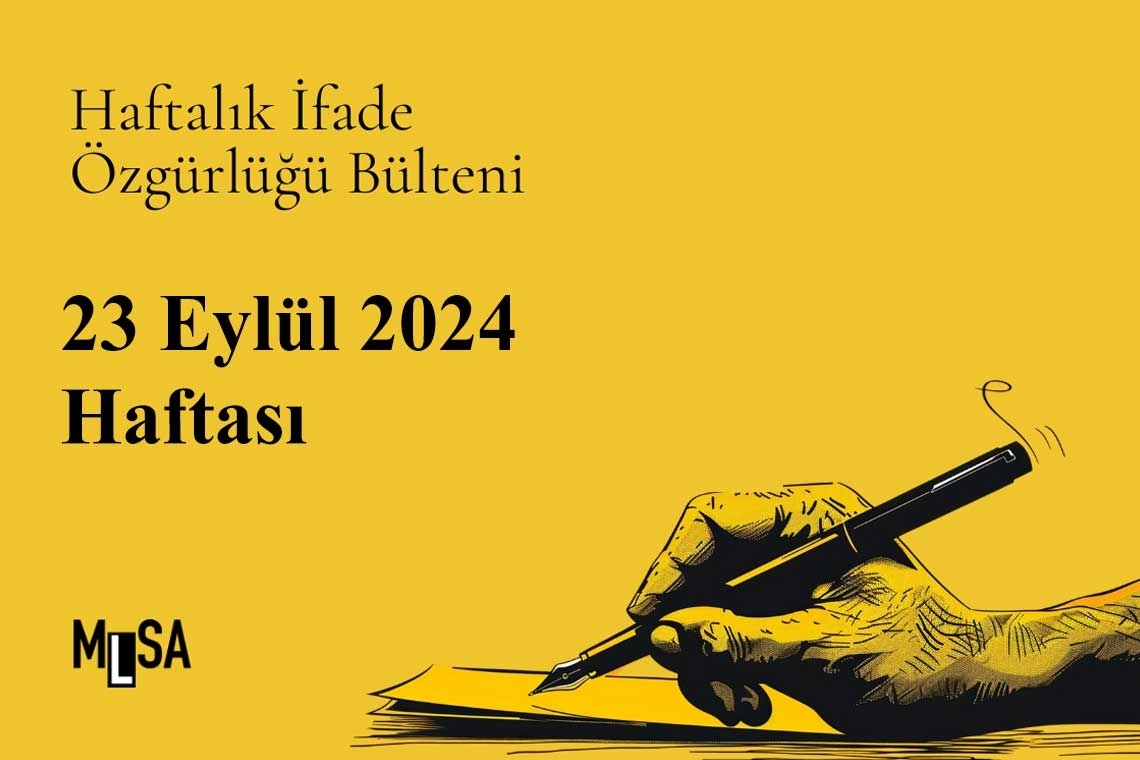Turkish journalist Sinan Aygül acquitted in landmark censorship law case
Journalist Sinan Aygül, the first journalist arrested under Turkey's new "Censorship Law," was acquitted this week. Aygül had faced charges for "publicly disseminating misleading information" under the law, officially enacted in October 2022 as part of a Turkish Penal Code amendment. His trial had garnered significant attention as a test of the law’s potential impact on press freedom in Turkey.
Former Ankara Human Rights Association co-chair Fatin Kanat was also acquitted in a separate trial. Kanat faced charges under Article 301 of the Turkish Penal Code, which criminalizes "insulting Turkishness," after he published a statement commemorating the 108th anniversary of the Armenian Genocide. The court ruled that the charges lacked sufficient basis.
However, the clampdown on free expression in Turkey continues. In the case of journalist Dilruba Kayserilioğlu, who was arrested for comments made in a street interview and faces charges of "insulting the president," restrictions were imposed on media and observers at her latest court hearing. Despite public interest in the case, journalists and even Kayserilioğlu’s mother were barred from attending, while police officers were permitted inside the courtroom.
These rulings were part of a broader series of legal proceedings this week in Turkey targeting journalists, activists, and participants in public protests. The Media and Law Studies Association (MLSA) monitored 21 such cases across seven provinces, reflecting ongoing pressure on journalists and civil society.
In another development, MLSA escalated its challenge to the Constitutional Court after a decision not to pursue criminal charges regarding the failure of GSM operators to maintain networks during the catastrophic February 2023 earthquake and the government’s decision to throttle social media during the crisis. MLSA claims that the lack of accountability violated citizens' rights guaranteed under the European Convention on Human Rights and the Turkish Constitution.
Journalist İdris Yılmaz is also facing trial for social media posts accusing police in Van of using violence against the public. Yılmaz is charged with "inciting the public to disobey the law" and "inciting hatred and enmity."
Meanwhile, in Eskisehir, 10 individuals who participated in the city’s June Pride March are now on trial after being detained during the event. The indictment uses the term "so-called" to describe the Pride march and omits police intervention, which had been caught on video.
Other significant cases included the postponed trial of journalist Gökçe Fırat, who has been detained since the failed 2016 coup attempt, and the trial of journalist İsmail Arı, who faces charges of defamation and slander based on complaints by a Nationalist Movement Party (MHP) politician.
The Turkish judiciary also upheld a statute of limitations ruling in the long-running case concerning the Diyarbakır Prison massacre, in which 10 inmates were beaten to death. The ruling brought an end to a case that has spanned nearly three decades.
In addition, there were developments regarding several other prominent legal battles, including a court hearing in which the prosecution called for the punishment of seven Boğaziçi University students for allegedly "insulting religious values" during a protest artwork display and a separate acquittal for journalist İsmail Eskin, whose previous conviction for social media posts was overturned by the Court of Cassation.
Despite the wave of court cases, a few acquittals did occur, with students at Ankara University being cleared of charges related to satirical prayers at the long-standing "Cow Festival" tradition, with the court ruling that the speech constituted protected criticism.
The week’s events underscore the ongoing tensions surrounding freedom of expression and the judicial crackdown on activists and journalists in Turkey.



